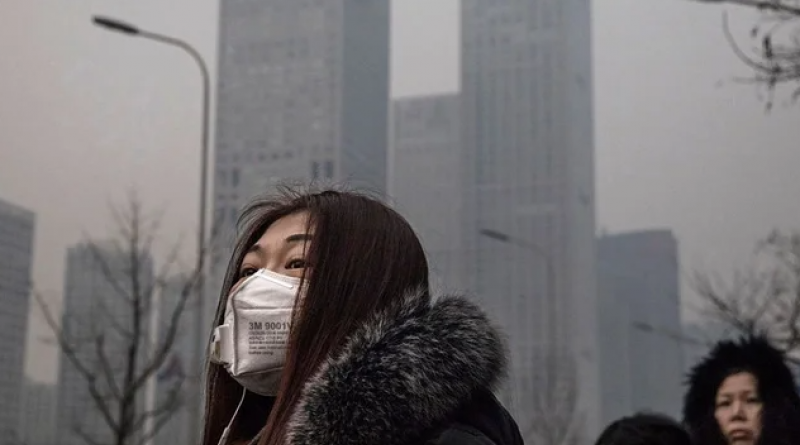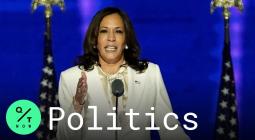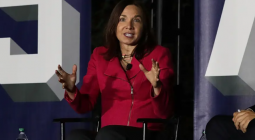Climate and COVID-19 crises both need feminism – here's why.

People all over the world are reeling from the one-two punch of climate change and COVID-19. The overlapping crises are exposing and intensifying patterns of disadvantage, marginalization and inequality for vulnerable people including the poor, minorities, children, women and the elderly. Most policymakers are still scrambling to deal with climate change and the pandemic as separate problems. But feminism offers ways of responding to both predicaments at the same time by providing a roadmap.
Instead of analyzing each crisis separately, we learn more by looking at how they intersect. Both climate change and the coronavirus pandemic have uneven, unequal and long-lasting impacts that depend on where you live, who you are, and what you have. Feminism helps identify these often-invisible contours of sufferings by highlighting underappreciated ways that people relate to each other as individuals, groups and institutions. Approaching these crises by centering feminism can help formulate fairer policies and projects that help improve life for everyone.
Feminism has shown the importance of intersectional analysis, that is, paying attention to unrecognized inequities in a society across groups. We can see the importance of a feminist intersectional approach in, for example, the issue of wage disparities. U.S. women are often paid less than men, but when we further account for race, we see that Black women earn even less than white women. Black women thus face a double disadvantage compared to white men because they live at the intersection of being Black and being women.
In the context of the climate crisis and the COVID-19 pandemic, an intersectional feminist approach reveals how different people cope with and respond to both disasters within the same country and across countries.
For one, this approach shows that the communities hardest hit by climate breakdown and the pandemic are often the same, namely women and minorities. For instance, climate-fueled water scarcity means more women and girls are spending time and labor fetching water around the world. Pandemic-induced economic downturn resulted in more women working in small businesses, farms and factories facing greater household economic insecurity. At the same time, communities of color in the U.S. experienced disproportionate rates of illness and deaths from the coronavirus, and many were already dealing with environmental health threats such as poor air quality. Feminism helps us better identify and appreciate differentiated burdens, risks, exposures and death rates that exist within and between countries.
Another lesson is that many historically impoverished countries — often former colonies of European states — have faced greater climate-related hazards and coronavirus-related impacts but with fewer resources. For instance, countries across South Asia currently face unprecedented deaths from the pandemic while simultaneously battling climate-fueled heat stress, sea level rise, tropical storms and floods. Poor South Asians, often women and ethnic or religious minorities, are facing multiple burdens and hardships without adequate access to health care, earnings and housing. These same countries and people are now unable to access the desperately needed vaccines.
Feminism also addresses the practical wellbeing of people by highlighting how the above discrepancies play out differently across place, time and identity. With the joint crisis of climate and pandemic, there are similarities across the world in how women have experienced disproportionately more unpaid care work, gender-based violence and job insecurity but less access to information and safety measures. However, these problems aren’t borne equally by all women: The pandemic exposed and exaggerated fault lines between various groups of women, revealing that women in low-paid jobs, often women of color and migrants, face greater hardships from job losses with the pandemic-induced economic downturn.
Context matters, and attention to this is important.
Feminism promotes keener attention to context by underscoring connections among people and by elevating awareness of these links. Once we can see these similarities and differences between groups of people, we can address shortcomings systemically and frame policies for more equitable solutions. The goal is to elevate a range of voices so that marginalized people are heard and heeded in the corridors of power to allow for more equity in society. While this task involves working with local leaders, groups, organizations and institutions, it also means paying careful attention to local power dynamics to see who is excluded or left out.
These types of intersectional feminist responses to the COVID-19 pandemic and climate change are needed. And these must go beyond words. There has been increased rhetoric of “build back better” for a post-pandemic era of climate change in the U.S. and elsewhere. Yet exactly what does this mean and who is deciding their content? What will be improved, where will this take place, who will it benefit, and why? Post-pandemic recovery may not offer gender-sensitive or gender-just responses unless it is specifically made to do so.
Of course, feminism is not a magic bullet. Climate and disease present unique technical and scientific challenges that must be dealt with on their own terms, and public policy is constrained by legal requirements and other limitations.
Nevertheless, feminism can provide a roadmap for analysis, advocacy and action uniquely suited to overcoming the biggest challenges of our time while promoting fairness, health and wellbeing for individuals and society. There are no easy solutions or quick fixes, but investigating, exposing and understanding interconnected injustices is needed to address them for everyone. The concrete differences need to be recognized and tackled systemically or else restorative measures will ultimately fail, collapsing under the weight of their own inequality.
Farhana Sultana is associate professor of geography and the environment at the Maxwell School of Citizenship and Public Affairs of Syracuse University, where she is also the research director (Environment) in the Program for the Advancement of Research on Conflict and Collaboration (PARCC). Learn more about her work here and follow her on Twitter @Prof_FSultana.
May 2021
THE HILL




